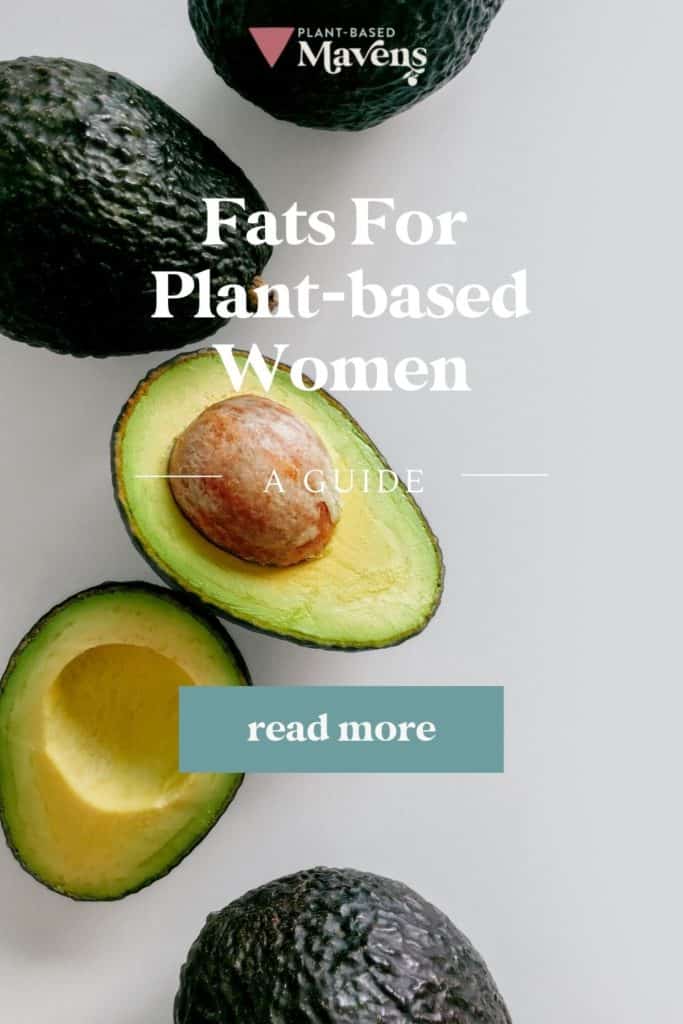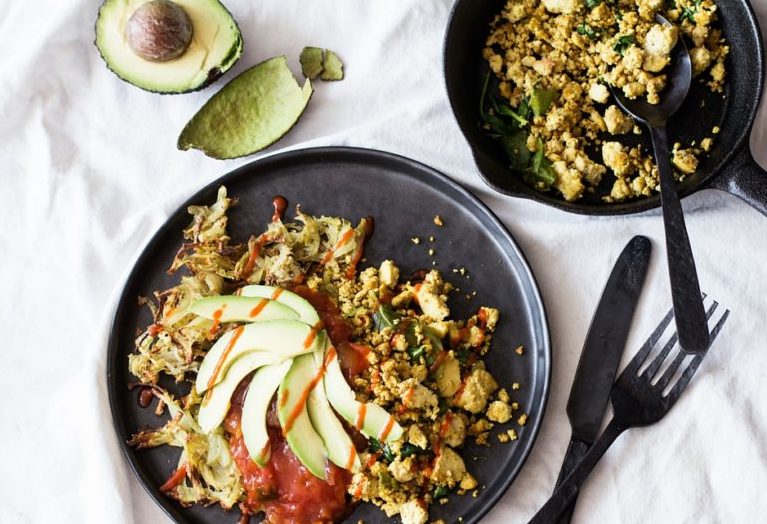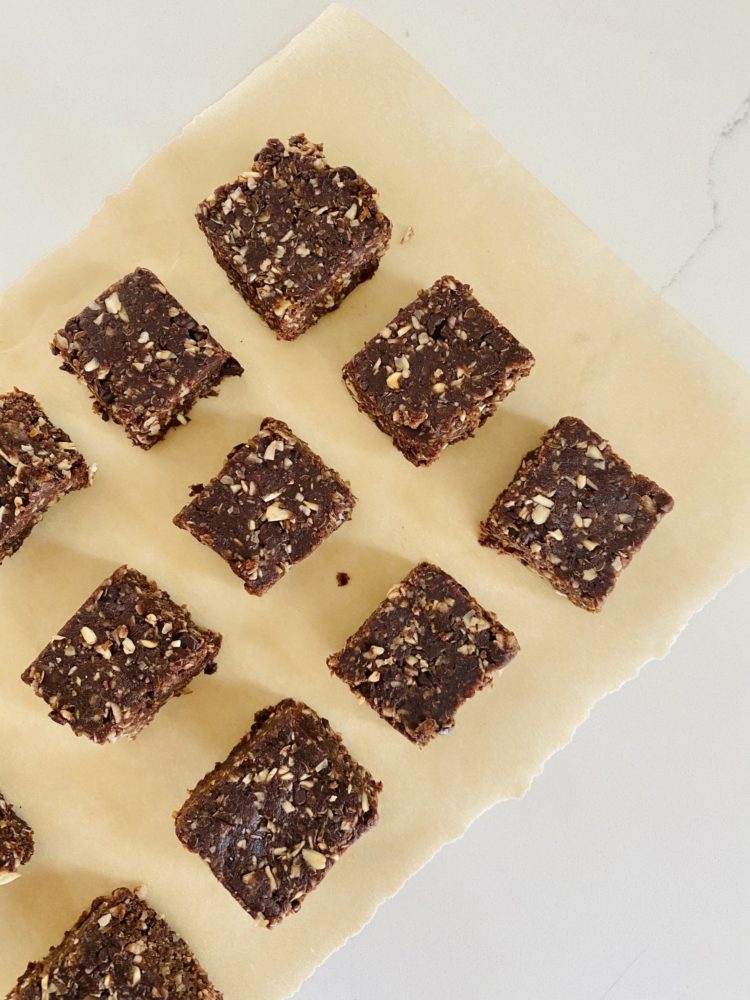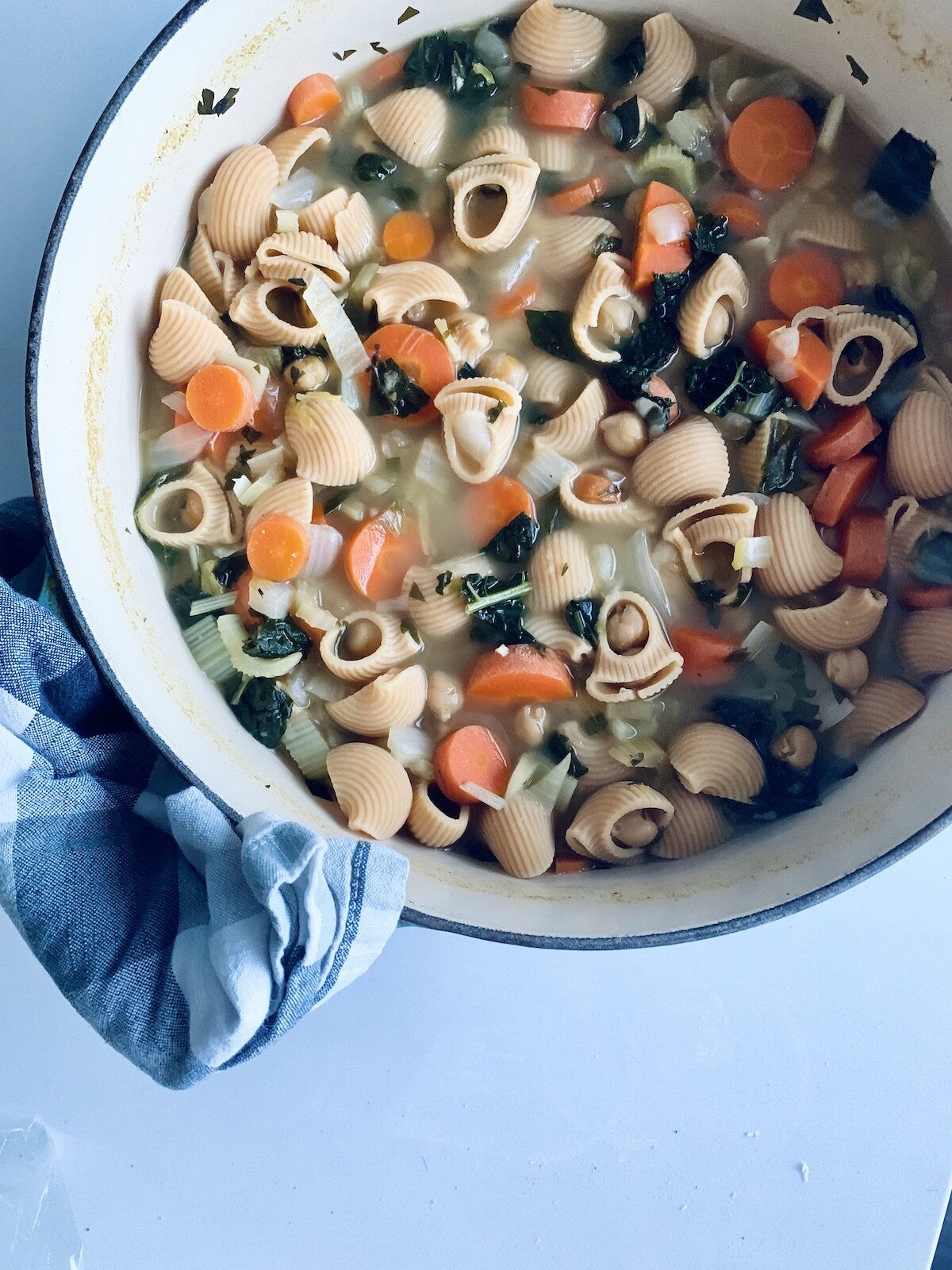Why is Fat Important?
Women who eat healthy fats like nuts, which are high in fat, are less likely to develop heart disease. Healthy fats are also beneficial for healthy hair, skin, and nails. Healthy fats are abundant in the most health-promoting traditional diets in the world. Fats are necessary to absorb the fat-soluble vitamins A, D, E, and K as well as some phytonutrients. While it has become common practice in plant-based and dieting circles to severely restrict fat, this is not necessary and may even be dangerous. I have seen many pre-menopausal women in particular restrict fat to a point that it negatively affects their ability to meet essential nutrient and energy needs. This can cause hormonal imbalances and irregular periods.

Best Sources of Fats for Women
There are several different types of fats, and some support health while others can be harmful to your health.
Healthy Fats
Healthy fats include unsaturated fats, or those that are liquid at room temperature. This includes both monounsaturated fats and polyunsaturated fats. Monounsaturated fat sources are not an essential part of the diet, but research shows that there are many health benefits including lower disease risk when foods high in saturated fats are swapped for foods high in monounsaturated fats.
On the other hand, polyunsaturated fats (omega-3 and omega-6) are considered essential fats, meaning they must be included in the diet.
Healthy Fats For Women To Emphasize:
- Nuts and nut butters
- Seeds and seed butters
- Avocados
- Olives
- Vegetable oils: olive, canola, avocado, flaxseed, hempseed
Unhealthy Fats
Fats that harm health include saturated fats and trans fats. These fats are solid at room temperature.
Saturated fats are found in meat, dairy, eggs, coconut, and palm oil. It is linked to high cholesterol, heart disease, and cancer. Most plant foods are low in saturated fat.
Highly processed foods are the primary source of artificial trans fats. Animal foods are the main sources of naturally-occurring trans fat. Because of its strong connection to high cholesterol, inflammation, and heart disease, the Food and Drug Administration (FDA) enforced that foods cannot contain more than 0.5 grams of trans fat per serving. Since it is recommended to completely avoid trans fat, see more about how to spot trans fat-containing foods in the “How Much” section below.
Unhealthy Fats For Women To Avoid:
- Red meat and poultry
- High-fat dairy (milk, butter, cheese, etc.)
- Eggs
- Coconut oil and palm oil
- Foods that may contain trans fat:
- Movie theater and microwave popcorn
- Packaged baked goods
- Vegetable shortening and margarine
- Fried foods
How much fat do women need?
The recommended intake for fats is 20-35% of total calories. Some therapeutic plant-based diets recommend fat intake much lower than this (10-15%), but severely restricting fat is not necessary for the average healthy woman. I recommend consulting a registered dietitian before limiting fat this much as it can have adverse side effects. The World Health Organization does recommends that premenopausal women eat at least 20% of their calories from fat.
The best way to approach fat intake is to focus on swapping saturated fat sources for unsaturated fat sources. This could be spreading your morning toast with avocado instead of butter, or swapping beef for tofu, or snacking on nuts instead of cheese and crackers.
Omega-3s
Omega-3 fat is a type of polyunsaturated fat that is essential in the diet. In other words, it is VERY important to your health that you get enough omega-3. Because it is so important, it has its own page of information Omega-3s for Women: A Guide which includes recommended intake, sources, and tips for meeting your needs.
Trans Fat
Although there is no safe level of trans fats, food manufacturers are allowed to include as much as 0.5 grams of trans fats per serving in food products and still list “0 grams trans fat” on the nutrition facts label. Because of this, the nutrition facts label is not a reliable place to ensure you are completely avoiding trans fat. The best way to avoid trans fat is to check the ingredients list for the words “partially hydrogenated”. If you see this phrase, avoid this product because it contains trans fats.
Tips For Choosing Healthy Fats For Women
- Swap animal-based foods for plant-based foods to lower your intake of saturated fats in favor of healthy fats
- If you are a premenopausal woman, keep fat intake at 20% of calories or higher
- Eat at least one serving of an omega-3 rich food every day to meet your needs for this essential fat (Read more about the importance of omega-3s here)
- One serving = 1 tbsp. ground flaxseeds or chia seeds, 2 tbsp. hempseeds, or about 10 walnut halves
- Eat one to two servings of nuts and/or seeds every day
- One serving = ¼ cup nuts, 2 tbsp. nut/seed butter, or 2 tbsp. seeds
- Avoid foods that list “partially hydrogenated” oils in the ingredients list
Common Questions About Fats
Should you avoid oil?
It is common practice among “whole foods, plant-based” eaters to completely avoid oils. The theory behind this is that oils are refined and are therefore void of many of the healthful nutrients contained in their originators. For example, an olive contains more nutritive value than olive oil. Oils are extremely calorie-dense and may therefore displace more nutrient-dense foods.
While there is certainly truth in these points, oils are not as “evil” as they are often made out to be. Some studies have shown success in healing diabetes, heart disease, and other chronic diseases with the help of very low-fat (and usually oil-free) plant-based diets, but the evidence that oils must be avoided for optimal health is weak. Oils are also not a necessary part of healthy eating. Eating a lot of added oils may make it harder to meet other nutrient needs while staying within your calorie needs. In other words, the choice to include or exclude oils is completely up to you.
I find that using small amounts of oil (just one to two teaspoons a day) in healthful ways can enhance the enjoyment of meals. Good-quality extra virgin olive oil drizzled over fresh greens, root vegetables tossed in avocado oil and roasted until golden, or a dash of toasted sesame oil added to a peanut sauce to deepen the flavor.
Is dietary cholesterol unhealthy?
The 2015 Dietary Guidelines for Americans removed the previous recommendation to limit dietary cholesterol to no more than 300mg because they claimed there wasn’t enough evidence to support the limit. While the evidence on dietary cholesterol may be unclear, the evidence on saturated fat and its link to heart disease is very clear. And most foods that are high in cholesterol (eggs, meat, dairy) are also high in saturated fat. So, cholesterol controversy does not change the fact that we should limit high saturated fat (and consequently high cholesterol) foods.
Is coconut oil healthy?
Coconut is one of the few plant sources of saturated fat. Some evidence shows it may not have the same negative effects on heart health as other saturated fat sources. However, the current evidence is limited, so there is more to learn before coconut oil earns its stamp as a health food.
I do not recommend eating coconut oil for any supposed (and currently unproven) health properties, but it can come in handy as an occasional ingredient in plant-based cooking.


